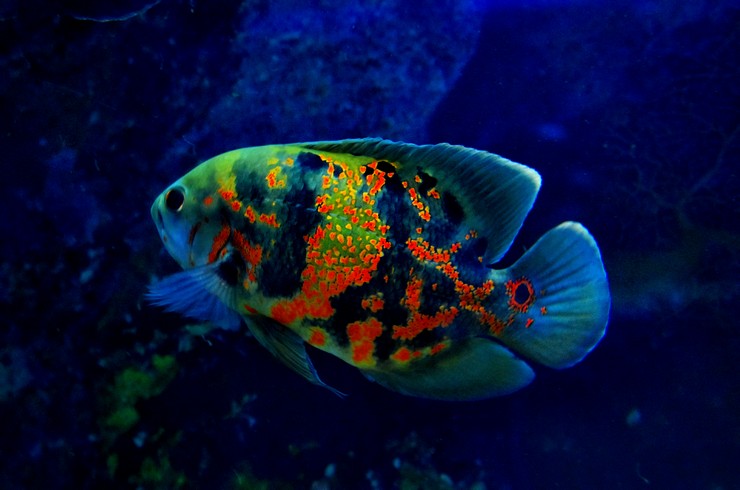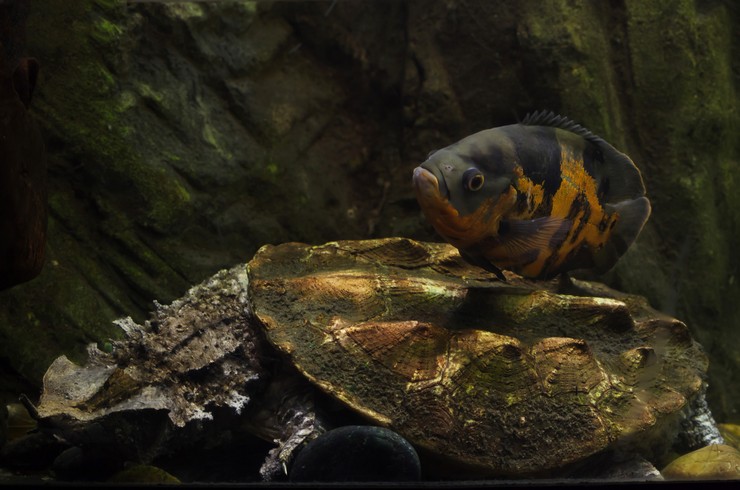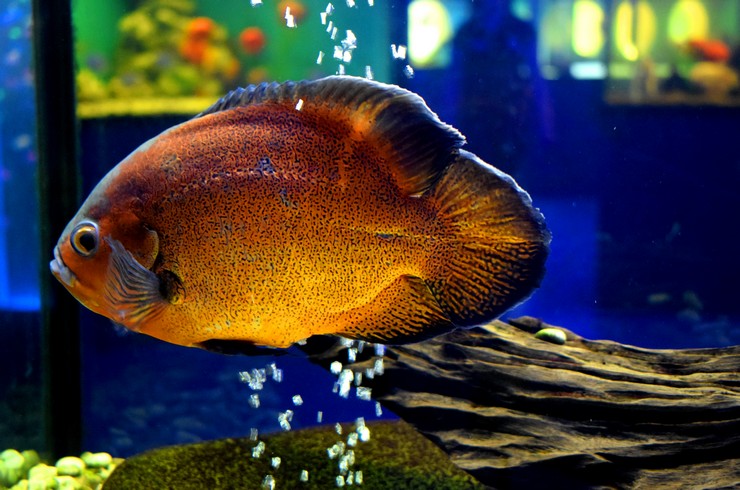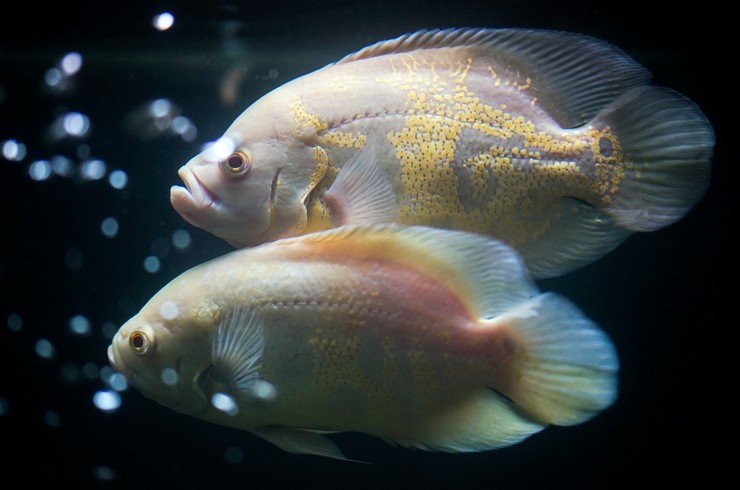Astronotus are large cichlids native to South America. At home, fish can grow up to 30 cm. Keeping such large fish creates the need for large aquariums. One adult astronotus should have at least 100 liters of water. Adult fish are usually settled in pairs, young ones – in small groups.
Astronotus aquarium
The usual size of Astronotus for sale is usually 3-5 cm. At this age, variegated and mobile fish often attract the attention of novice aquarists, who can purchase Astronotus without consulting about compatibility and add them to small peaceful species. Unfortunately, it ends badly – the grown astronotuses will simply destroy their peaceful neighbors.
To decorate the aquarium, it is best to use large natural driftwood, stones, ceramic grottoes. Be sure to keep them well secured. Large Astronotuses in the heat of the game can easily drop or break them.
The aquarium must be covered with a coverslip. This will not only help keep the fish from jumping to the floor but also keep it dry, as these large cichlids can splash water a lot.
Like any large fish, astronotuses need to organize high-quality filtration and aeration. For this, a powerful external filter and a powerful compressor are installed.
Water parameters
Astronotus are relatively hardy cichlids that adapt well to life in a variety of aquariums. Weekly it is necessary to change up to 20% of the volume of the aquarium and clean the soil to remove metabolic products. When preparing freshwater, keep in mind that tap water can pose a threat to your pets due to the possible content of chlorine and heavy metals in it. To instantly make it suitable for fish, as well as to get rid of the inconvenience of settling large volumes of water, use Tetra AquaSafe conditioner (5 ml per 10 liters).
Shine
Astronotuses do not have special requirements for the level of lighting. Since in most cases fish are kept without plants, it is better to use cold white light bulbs (6000-6500 K), which do not promote algae growth.
Priming
Astronotuses like to dig in the ground, so it’s better to use sand or large pebbles. 
Plants
Most species of living plants will not resist the onslaught of astronotuses; sooner or later they will be dug up and eaten. Therefore, plastic analogs are usually used or the aquarium is decorated without plants at all. Sometimes hard-leaved species (anubias, cryptocorynes) planted in pots are used.
Feeding the Astronotus
Astronotuses are real predators, so they must contain high-quality animal proteins.
Situations are not uncommon when these large cichlids are fed with minced beef, fish, earthworms, dry food for dogs or cats. Such feeding is not only incomplete but also dangerous. For example, fish do not have the necessary enzymes to digest beef, and invertebrates caught in nature can easily become a source of infections. Popular live and frozen foods are also not balanced and can infect the aquarium.
Therefore, the best choice would be to feed astronotuses with high-quality dry food:
- Tetra Cichlid (XL) Sticks are floating sticks that look like natural foods. Fully balanced contains high-quality proteins and a complex of vitamins for fish longevity.
- Tetra Cichlid Granules are perfect for growing Astronotus. They contain natural color enhancers to brighten the orange spots of the Astronotus.
- Tetra Cichlid XL Flakes, basic food for all types of cichlids in the form of large flakes, is well suited for fish. It is high in protein and plant nutrients and is specially sized for large fish.
Do not forget to arrange a “fasting” day for astronauts once a week, because the fish tend to overeat.
Compatibility
A species aquarium will be the best solution for keeping astronotuses. Content in pairs or small groups is acceptable. Astronotuses cannot be called extremely aggressive fish, they usually get along well with neighbors of similar size. Although the individual characteristics of some representatives cannot be ruled out. There are cases when fish did not give life to anyone, and sooner or later were left alone. To minimize possible hassles in a common aquarium, it is recommended to grow Astronotuses and their neighbors together from an early age.
As suitable roommates for astronotuses, one can single out: black pacu, Parowan, large species of cichlazomas (for example, Managua), plekostomus, hybrid parrots.
Keeping with small species is completely excluded: all fish that are placed in the mouth of the Astronotus will be perceived as food.

